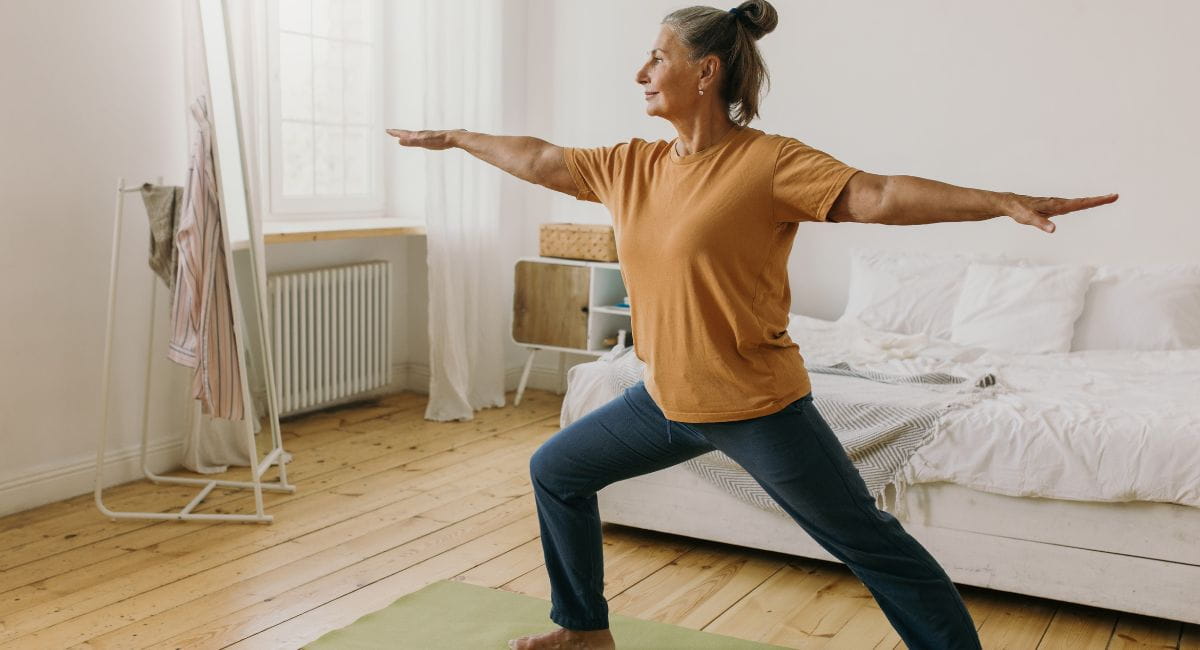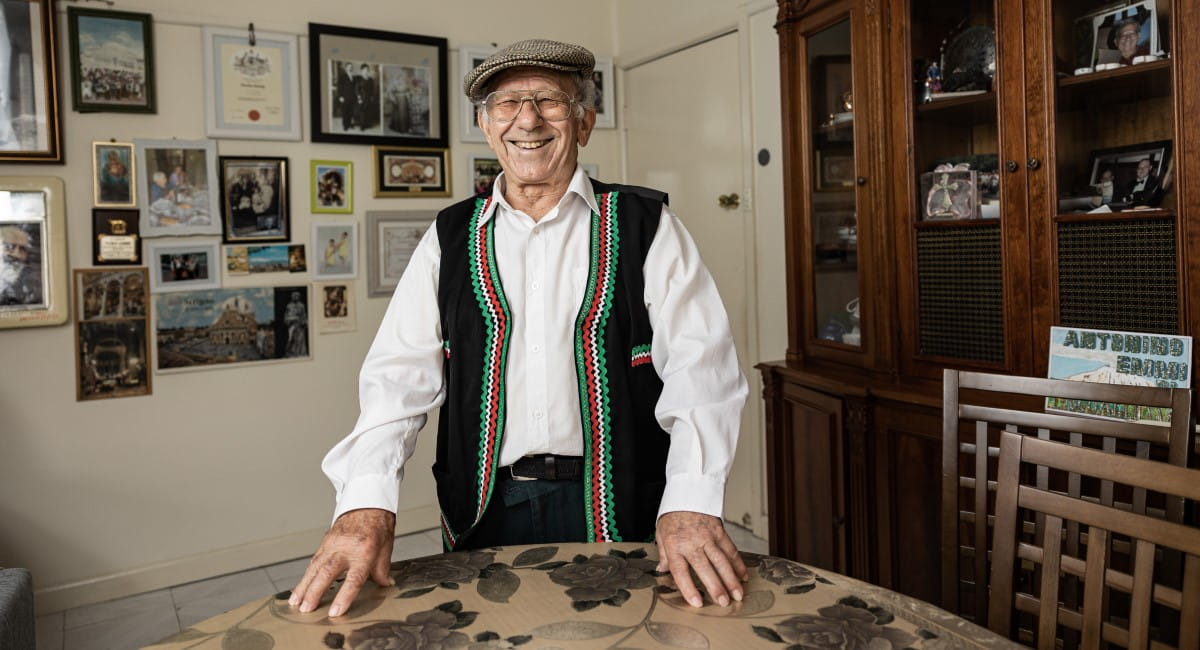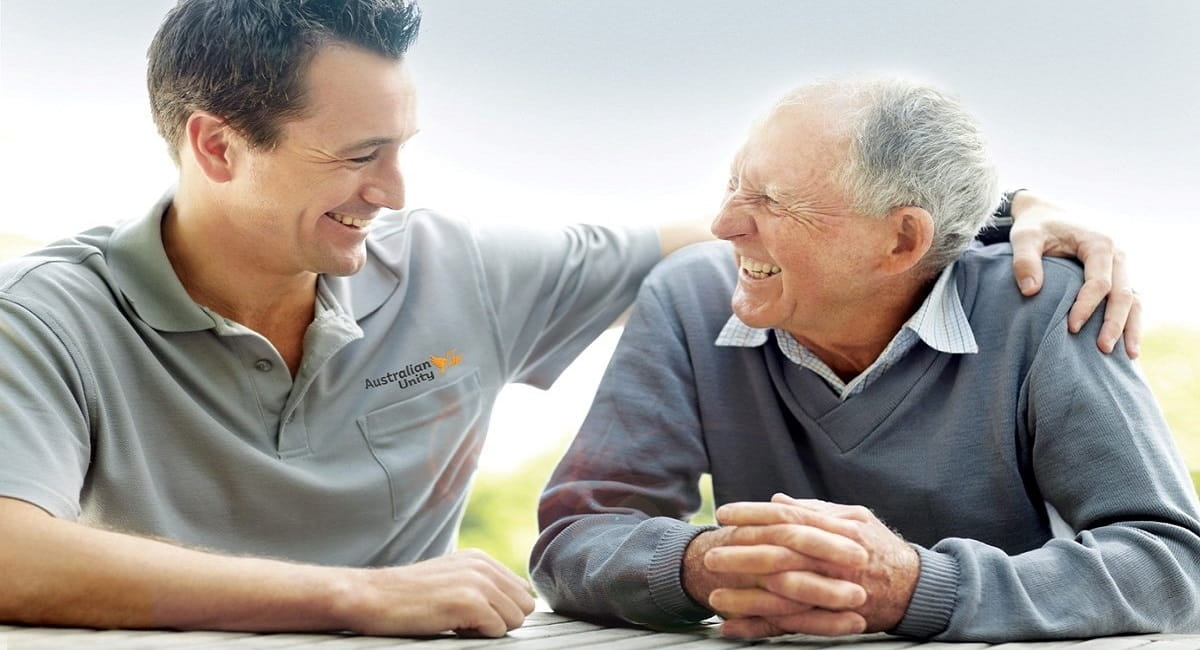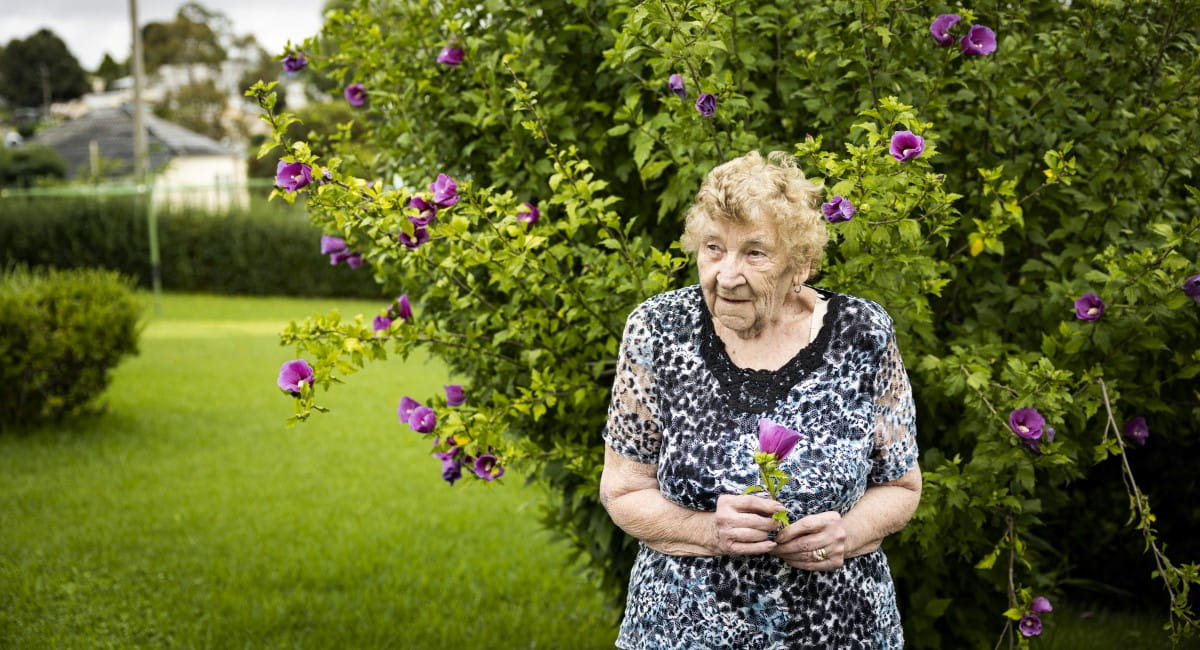“Strengthening the big muscles in your body will help you to maintain your balance and stay upright.” —Dr Chiara Naseri, Physiotherapist at Australian Unity.
Key points
- Studies indicate that one in three older Australians experiences a fall each year. If you want to reduce your chances of having a fall, focus on improving your balance.
- If you have a fear of falling in your house, book a home safety assessment through your Australian Unity representative.
- Strength is another important factor for avoiding (and recovering from) a fall, so performing strength-training exercises like squats and lunges is recommended.
With studies indicating that one in three older Australians experiences a fall each year, doing all that you can to prevent such a stumble is crucial to avoiding injuries and maintaining a high quality of life.
Want to reduce your chances of having a fall? Focus on improving your balance.

Boosting your balance
Thankfully, bettering your ability to balance doesn’t involve learning to walk on a tightrope or gymnastics beam. Instead, consistently performing a variety of simple exercises will go a long way towards developing better balance.
“The research tells us that exercise is the most effective thing to do to maintain your balance,” Dr Chiara Naseri, Physiotherapist at Australian Unity, says. “People should exercise at least half an hour a day, and two of those sessions in the week should include challenges to their balance with tailored exercises.”
How do you challenge your balance? Standing on one leg, moving up and down on your toes, exercising on different surfaces and closing your eyes while completing a movement are all examples of a ‘balance challenge’ that exercise physiotherapists recommend.
Dr Naseri explains that strength is another important factor for avoiding (and recovering from) a fall, so performing strength-training exercises like squats and lunges is recommended.
“Strengthening the big muscles in your body will help you to maintain your balance and stay upright. We’re talking about the big muscles in your thighs, calves and glutes around your backside, but also your trunk,” Dr Naseri explains.
Booking an appointment with a physiotherapist is beneficial, because you’ll receive a tailored exercise program that is designed to help you achieve your goals.
“We look at how motivated people are to exercise, what their exercise preferences and interests are, their level of fitness and if they have any type of pain or conditions like arthritis,” Dr Naseri says, adding that she aims to create exercise programs that are practical, achievable and enjoyable for her customers.
One such customer is Mike Pepper, 69, who has a longstanding tremor that is exacerbated by illness. He was recently hospitalised with COVID-19, which left him so weak that he was unable to walk unaided. “I couldn’t walk and I certainly didn’t have any balance,” Mike says.
As part of Mike’s recovery, Dr Naseri has given him an assortment of exercises to do, in order to help him regain his balance. “I do those twice a day and Chiara comes to see me twice a week to make sure I’m doing them right and occasionally give me additional exercises,” Mike explains. “A lot of it is strengthening exercises for my legs and arms, and she’s also shown me how to stand, start walking and how to turn around.”
The impact has been incredible. “It’s quite amazing,” Mike says. “I can now walk unaided and have strength in my arms and legs.”
.jpg)
Adapting your abode
Do you feel unsteady on your front steps? Is getting in and out of the shower harder than it used to be? Home safety assessments are helpful for people who are having trouble moving around their home or completing activities like showering or cooking. If you feel unsafe and have a fear of falling in your house, booking a home safety assessment through your Australian Unity representative is a wise idea.
So, what happens during a home safety assessment? One of our occupational therapists will review both your house and your capabilities, detect any tripping hazards (such as loose rugs) and identify potential areas where supports (like handrails) can be added to make your home safer.
“For people who are at risk of a fall, there is a range of aids and modifications that can help,” Renee Barnfield, Occupational Therapist at Australian Unity, explains. “These include mobility aids like a walker, walking stick or wheelchair, rails installed throughout the home – in the shower, toilet, hallways and by steps – or other modifications such as ramps. Equipment like lift chairs, adjustable beds, shower chairs and toilet aids can also be beneficial.”
Renee understands that change can sometimes be difficult to accept, but notes that while you may be able to get by without any modifications or equipment, you’ll remain at high risk of a fall.
“I tell my customers that sometimes they need to accept these small changes – as much as they don’t want to – to allow them to stay home and live independently,” Renee says. “Accepting these minor adjustments in the short term will help to achieve the long-term goal of living at home.”
Our team of experienced occupational therapists and exercise physiologists can visit you in your home and design a program of physical activity and movement to improve your strength and balance to make daily life easier. Speak to your branch or call 1300 160 170.
Tips for staying steady
Besides working on your balance and making safety modifications to your home, there are several steps you can take to reduce your risk of a fall. If you’re feeling unsteady on your feet, it might be worth:
- getting your vision checked by an optometrist
- reviewing your medications with your GP
- booking a hearing test, as hearing loss can impact your balance
- wearing supportive footwear
Disclaimer:
Information provided in this article is of a general nature. Australian Unity accepts no responsibility for the accuracy of any of the opinions, advice, representations or information contained in this publication. Readers should rely on their own advice and enquiries in making decisions affecting their own health, wellbeing or interest. Interviewee names and titles were accurate at the time of writing.


